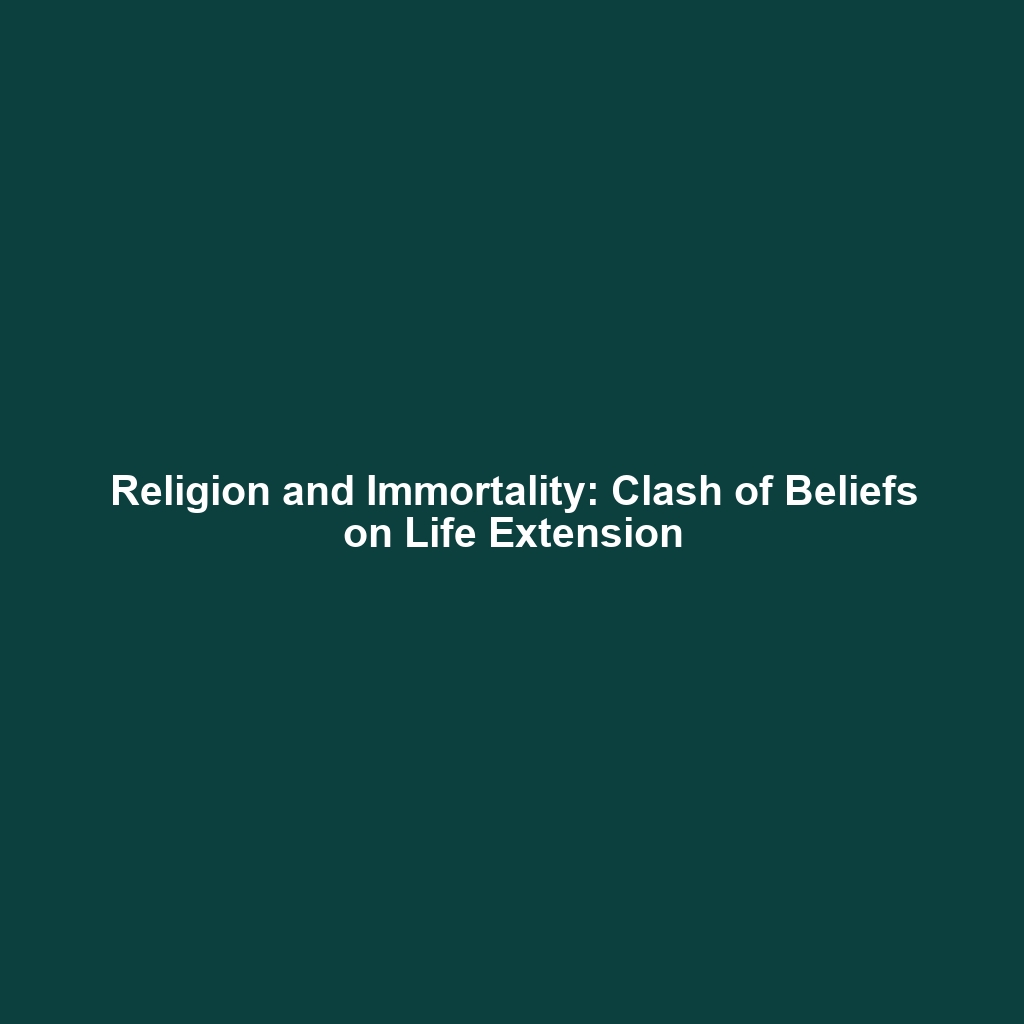Religion and Immortality: Perspectives on Life Extension and Resurrection
In an era where medical advancements continue to push the boundaries of human existence, the intersection of religion and the concept of immortality has become increasingly significant. Various religious traditions grapple with beliefs surrounding life extension and resurrection, resulting in a spectrum of opinions. Some faiths embrace these advances as a testament to human ingenuity, while others view such pursuits through a theological lens that raises ethical concerns. Understanding these differing views is crucial as we navigate the complex domains of Cryonics and Life Extension.
Key Concepts
The discussion of religion and immortality intersects with several key concepts impacting not only religious beliefs but also societal attitudes towards life extension and resurrection:
- Theological Perspectives: Various religions propose differing doctrines regarding life after death, influencing their stance on technological advancements in life extension.
- Ethical Considerations: The moral implications of altering natural life spans raise questions that many religious traditions strive to answer.
- Human Nature and Spirituality: Some belief systems view the human soul as distinct from the physical body, raising inquiries about the legitimacy of extending life artificially.
Applications and Real-World Uses
The application of religious beliefs to modern practices of life extension brings about profound implications:
- How Religious Beliefs Inform Medical Advancements: Some faiths support the use of cryonics and other technologies as legitimate means to prolong life, framing such advancements as tools for divine stewardship.
- Applications of Counseling: Spiritual care, when integrated with medical treatments, helps individuals navigate the psychological impacts of end-of-life decisions.
Current Challenges
The exploration of religion and immortality within the field of Cryonics and Life Extension presents certain challenges:
- Challenges of Divergent Beliefs: The inclusive nature of religious perspectives often leads to conflicting views, complicating consensus on life extension practices.
- Issues in Theological Frameworks: Many religions struggle to incorporate new scientific advancements into existing theological frameworks.
- Societal Acceptance: The acceptance of life extension methods varies widely within and across religious communities, impacting research funding and public policy.
Future Research and Innovations
As fields related to Cryonics and Life Extension continue to evolve, future research may explore:
- Next-Generation Technologies: Innovations in genetic engineering and nanoscale medicine could redefine our approach to life extension.
- Breakthroughs in Interdisciplinary Studies: Collaborative research between theologians and scientists may lead to a more comprehensive understanding of immortality concepts.
- Public Outreach Programs: Initiatives designed to educate communities on the ethical implications of life extension technologies can foster dialogue and acceptance.
Conclusion
The discourse surrounding religion and immortality reveals complex relationships among faith, ethics, and technological advancements in Cryonics and Life Extension. Many religious traditions offer varying beliefs about life extension, presenting both support and opposition based on theological grounds. As society continues to explore these frontiers, it is essential to engage in open conversations about how we view life, science, and spirituality. For further insights, consider exploring related topics such as the ethical implications of cryonics and the role of spirituality in end-of-life care.
